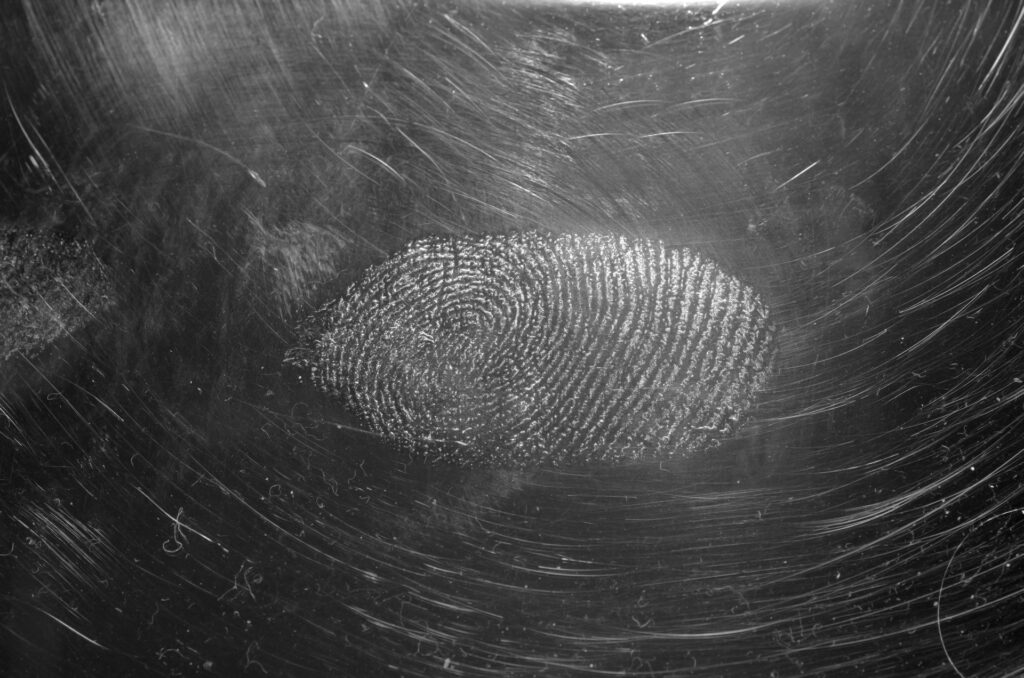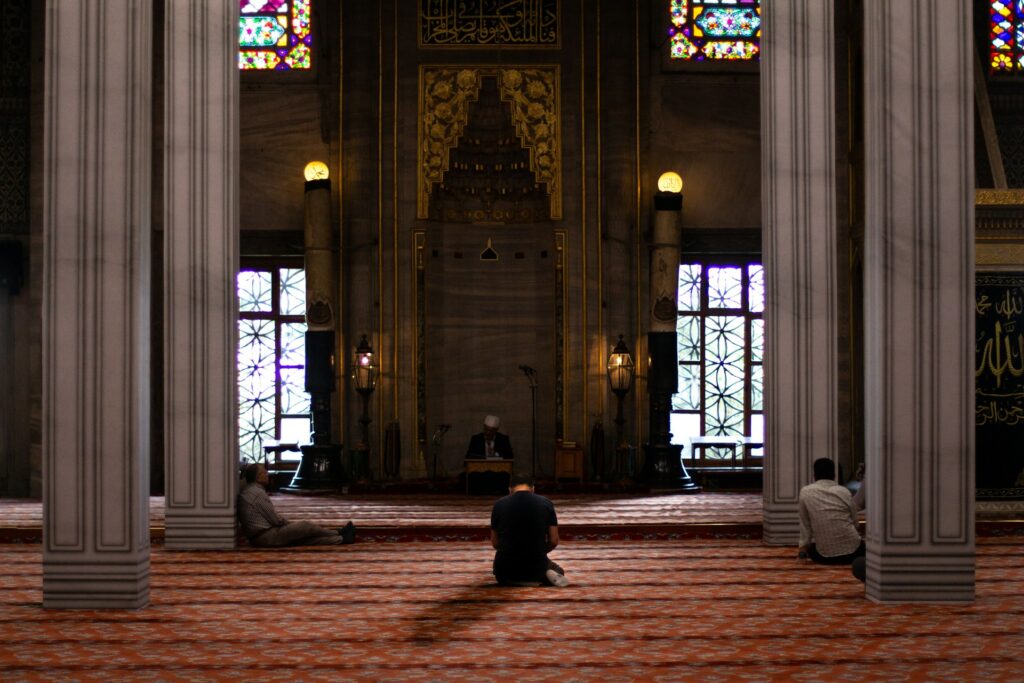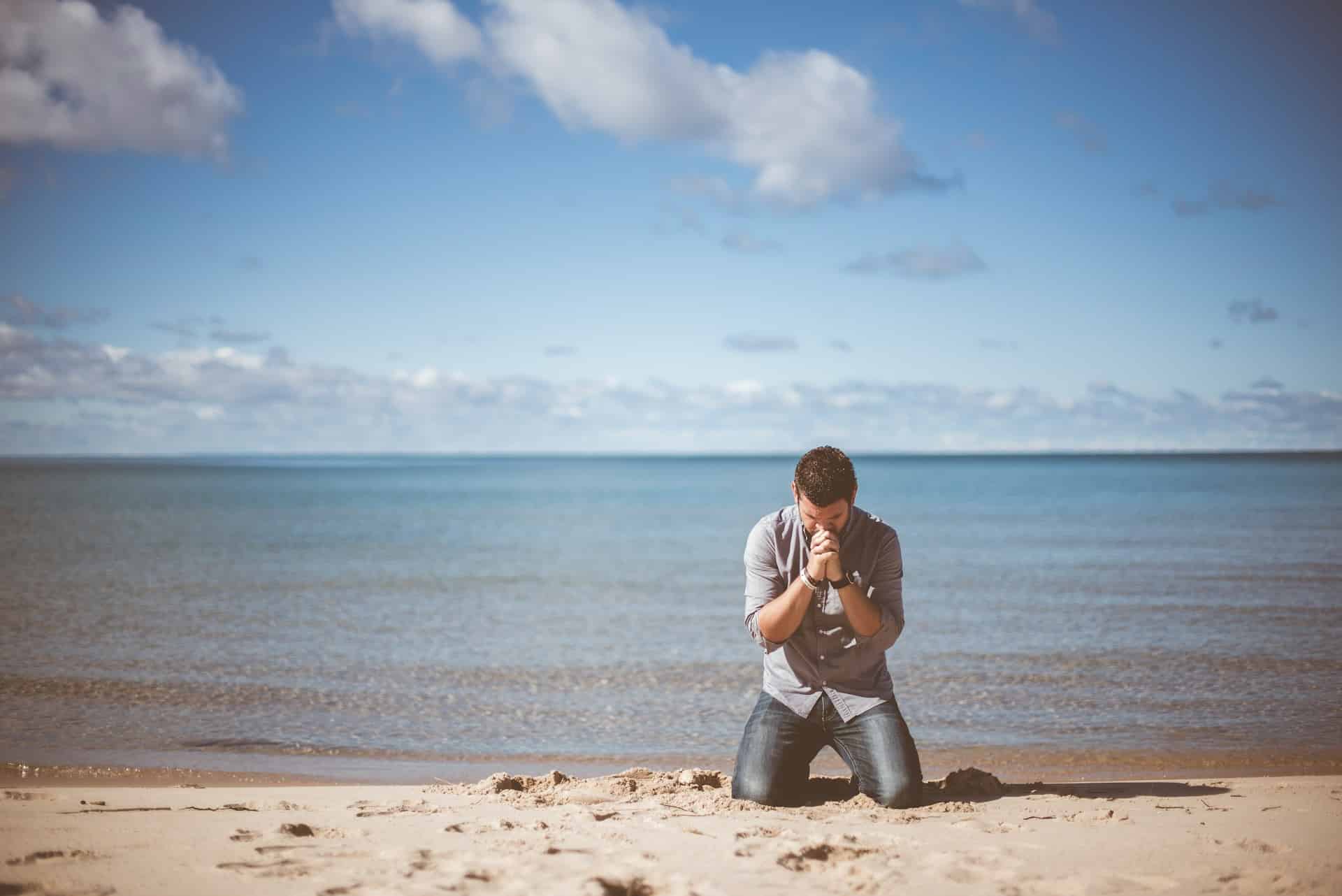The ritual prayer is perhaps the most recognizable feature of Islamic practice.
Five times every day, the Muslim is called to prayer. First in the hour before dawn, then when the sun is just past its zenith; again in the late afternoon when the shadows lengthen, and then immediately after sunset. Our final prayer is offered in darkness, when there is little to no discernible color remaining in the night sky.
Our prayers trace the arc of sol, shifting in their timing and intervals in concert with the seasons. The shorter days of winter leave us with little time between each of the ritual prayers, while the extended daylight of the summer solstice allows for several hours between sessions. For the observant, the alignment of one’s ritual prayer with celestial movements affirms our rhythmic relationship with light.
It’s a silly thing to validate ancient, traditional, revealed knowledge through scientific discovery. The entire scientific model is based on the idea that we can only draw conclusions from the accumulation and analysis of evidence. But our bodies of evidence are constantly shifting as we innovate increasingly sensitive instrumentation, and our analysis is almost hopelessly culture-bound. Scientific “discovery” is a moving target at best.
Rather, as believing people, we evaluate the merit of scientific proclamations based on their accordance with revelation. And so we pay attention to research on the influence of physical light on creation, attested to by the prescribed intervals of ritual prayer and by God’s suggestion to notice these things:
Surely, in the alternation of night and day and in what God has created in the heavens and the earth, there are signs for a people who are God-fearing.
Q10:6
Biology

Studies on our biological clocks, or circadian rhythms, are incredibly interesting. So much of our physiology is regulated by light. For example, darkness triggers the secretion of melatonin, a hormone that induces relaxation and sleep. Some have taken to calling it the “hormone of darkness.”
Secretion of melatonin stops in response to daylight, allowing us the energy and vigilance to do the things that must be done to earn or otherwise provide for our families. And indeed, God tells us:
It is God Who has made the night for you to rest and the day bright. Surely God is ever Bountiful to humanity, but most people are ungrateful.
Q40:61
The intervals of ritual prayer compel us to remain conscious of natural light as it changes. Outside and away from artificial lighting, our metabolic activities will actually synchronize with the earth’s rotation, which, of course, is the mechanism behind the perceived rising and setting of the sun. Much of our physiology is beyond conscious control, and so our anticipation of ritual prayer becomes a brilliant opportunity for holistic internal alignment, as our intentions and consciousness align with our chemistry.
Character

It takes awhile to get where we want to go in life.
That’s the case for most of us, and if there is one correlation that we bank on, it’s the value of persistence. There are tragedies and exceptions, but observation and experience have taught us that most people don’t get where they want to go simply because they stop trying to get there.
And a big part of why we stop doing the things that need to get done is because we just don’t feel like doing it anymore. Thomas Edison reminds us that genius is 1% inspiration and 99% perspiration. We all have those moments, perhaps after a particularly good cup of coffee, where we are suddenly motivated to hit the gym, write the Great American Novel, and go back to school.
But very few of us will actually do any of these things to fruition. Doing so requires consistent work over time and we just can’t maintain the motivation. Our rationale for greatness is too-often rooted in emotion.
We love emotions around here, and as powerful as they can be, we’ve come to recognize them as inconstant and ephemeral. We encourage the experience, expression, and investigation of emotions, but they are a lousy foundation for long work. Rather, we embrace duty and obligation.
Establishing the ritual prayer helps us do exactly that.
O my son, keep up prayer, enjoin what is good, and forbid what is wrong. And bear patiently whatever may befall you; surely that is true constancy.
Q31:17
Our biology inclines us to take the path of least resistance. That’s what is most efficient, and we have engineered efficiency into our lives to the point where very few of us in the developed world will expend the level of physical energy necessary for even basic fitness. With our cars and our furniture and our food delivery options, we almost never have to stand, let alone walk. Our bodies soften, our arteries harden, and our initiative evaporates.
Easy isn’t always better.
In the above referenced Qur’anic passage, a father obligates his son to “keep up prayer.” This is linked later in the verse to patience and constancy. We are here given the keys to the kingdom.
A commitment to performing the ritual prayers in their appointed times teaches us about commitment. It doesn’t matter how we feel. It doesn’t matter what else is going on. We do what needs to be done. We are constant, and our self-respect explodes out of the witnessing of our persistence.
Through the ritual prayer, we become exactly the kind of person that can be successful, with God’s help and permission.
Identity

There is tremendous value in knowing who we are. Confidence in our self-knowledge will guide us into advantageous friend-groups. A strong sense of identity will minimize the probability of manipulation and abuse.
There is no better way to affirm our identity as Muslims, for ourselves and others, than through the ritual prayer. It is, as we said earlier, the most recognizable feature of Islamic practice.
This is an important consideration when it comes to reminding one another about the critical centrality of ritual prayer. Religious practice must not be compelled. This is an axial premise in our faith tradition because the power of ritual lies primarily in its willful election.
However, if one chooses to identify as Muslim, then all others who similarly identify have a shared obligation to remind one another of that choice. This is only decent, because identity is ultimately aspirational.
The notion of identity has much more to do with what we want to be than who we actually are. Identity groups are rarely formed around the obvious and unchangeable. We don’t “identify” as tall or short. Our skin color or facial features may hint at ethnicity, but our identification with a particular ethnic group has less to do with physical expression and much more to do with our voluntary embrace of and participation in the cultural heritage of the group.
Because of this, the group has some jurisdiction on just who may claim affiliation. There are normative values that must be honored, boundaries that cannot be crossed, and representation that must be considered. A healthy group invites aspirants to consider all of this, recognizes the need for reinforcement of participatory criteria in order to maintain group cohesion, and executes this reinforcement without resorting to compulsion.
Identity is the story we tell others about ourselves. It is a story that must be immediately and publicly verifiable. Trust, security, and camaraderie within a group depend on this.
If one identifies as an entrepreneur, but punches the corporate clock daily, other entrepreneurs are right to not claim him. Better, however, is for other entrepreneurs to recognize that this person’s identification with their group is not actual, but aspirational. With this in mind, they offer encouragement, direction, and advice. They help the aspirant gradually (but definitely) build a business. Over time, the aspirant stops punching a clock. His identity as an entrepreneur, independently elected, is now actualized.
Just as the businessman without a business is hardly deserving of the title, the ritual prayer is the litmus test for the veracity of our claims to Islam.
If we are deficient, we must first take responsibility. In addition, we must allow for others to remind us of our elected covenant until we have grounded ourselves in the practice. We want to be Muslim and we have opted into a group that wants the same. Keeping one another on track comes with the territory.
Religion

As we have stated numerous times before, we are not religious scholars. Because of this, we have focused on the physical, personal, and sociological bases for the establishment of ritual prayer. We have been intentional in our omission of the specifically religious, spiritual, or mystical facets of the practice.
There are plenty of resources for that kind of thing if you are interested.
Our reflection here is meant to highlight the profound utility of ritual prayer in the development of self. That such a comprehensive tool is operationalized within a faith tradition is enough for us to embrace that tradition completely, so thorough is its recognition of the human condition.
We are all made better through Islam.
And our Islam is made better through our commitment to the ritual prayer.
Leave a comment below for posterity or join us in the D&T Chautaqua Discord to discuss this post with other adventurous spirits from around the world.

Jazakallah khair for this, so well put. And a great reminder to simply “keep up the prayer” and keep up what we’ve been honored with and not succumb to unhealthy ease.
Beautifully captured mashallah!